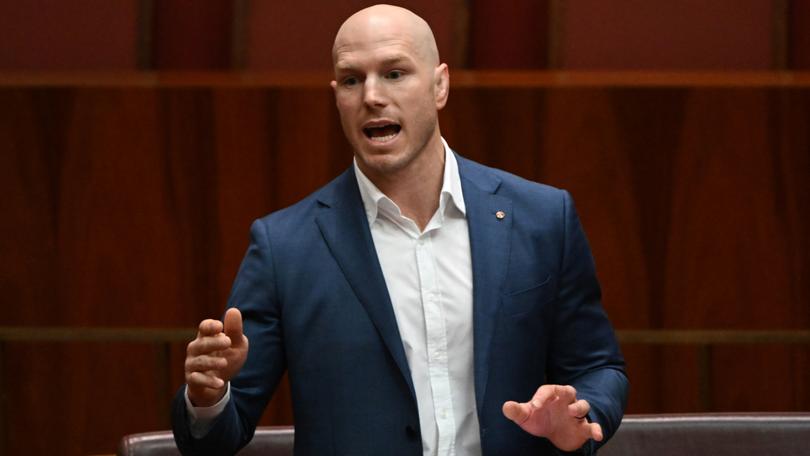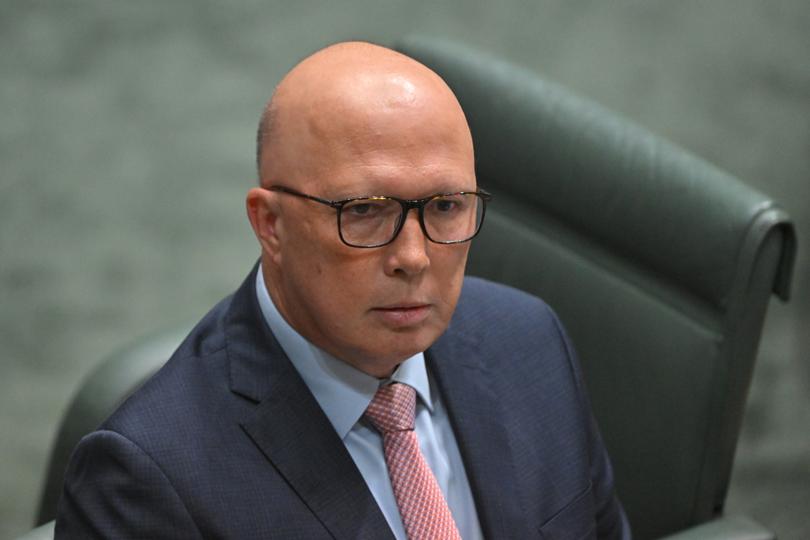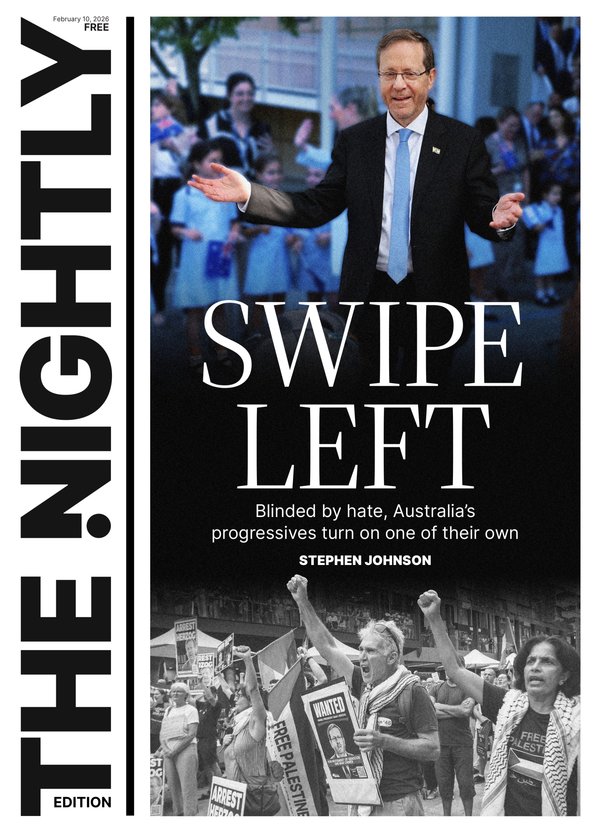Andrew Carswell: David Pocock gives the appearance of a ‘contemplative middleman’ but he is not
There is an acute awareness from businesses, large and small, that the celebrity Senator, who promised a new brand of politics with economic centralism at the core of his decision making, has sold them a pup.

Chat to enough business owners and you will hear a common retort when the discussion inevitably turns to politics. “David Pocock? I liked him better as a rugby player.” Cue the chuckles.
There is an acute awareness from businesses, large and small, that the celebrity senator, who promised a new brand of politics with integrity and economic centralism at the core of his decision making, has sold them a pup.
As the Albanese Government set about ramming a conga line of regressive economic, energy and climate, and IR policies through the parliament, Senator Pocock’s place in political history was being defined.
Sign up to The Nightly's newsletters.
Get the first look at the digital newspaper, curated daily stories and breaking headlines delivered to your inbox.
By continuing you agree to our Terms and Privacy Policy.Loosely owning the balance of power, Pocock gives the appearance of a contemplative middleman; a door-open crossbencher who listens intently to both sides of the argument, devouring submissions and absorbing counsel.
That much is true.
But when the listening is done, when the vote is nigh, type is reverted to. And type has not only enabled the Government to burden the economy with policies that make it harder and more costly to do business in Australia, it has also empowered them.
Of course, that is Pocock’s prerogative given that has always been his politics. Flashback to 2014 when the former Wallaby was arrested after chaining himself to mining equipment. The Australian Senate has always been a menagerie of far left and far right crossbenchers kicking the balance of power back and forth to each other. Nothing new here. But how Pocock wields his power is instructive. It is a glimpse into what comes next.

Assuming the drift continues, and the Albanese Government cannot pull itself out of its current malaise, minority government beckons. Such an outcome appears even more likely following the Dunkley by-election, which showed the Coalition nibbling away at Labor’s tenuous electoral position, without taking any big bites.
While the primary vote was concerning — it was only the second time since 1993 that the Liberals failed to win the primary count in the seat — there were enough positives to cling to in the whirlwind of defeat. An improved position, in a difficult suburban seat, in a State that has become a wasteland for Libs, when cost-of-living pain is far from peaking.
Never has there been such a significant political threat to the Australian economy, caused not by war-time aggressors or global financial scoundrels, but by fringe politicians who think their personal beliefs transcend economic realities.
But despite Dutton slowly beginning to change once-sceptical minds that he could be, kinda, sort of prime minister material, the electoral math remains problematic for the Coalition. They will win seats, but likely only enough to force the PM into an embarrassing deal-making dance with the Greens or teals; same, same but different.
There is a popular school of thought among conservatives that such an outcome would be beneficial for the Coalition; given the abject failure of the Gillard minority government that made a seemingly unelectable Tony Abbott not only palatable, but desirable. Burn it all down and rise from the ashes as mighty conquerors. Such thinking is self-centred and reckless.
The trauma that a minority government would wreak on the Australian economy, jobs and the nation’s social fabric would be immense; far beyond the impacts of Gillard’s “Dumb and Dumber deal” with faux conservatives Rob Oakeshott and Tony Windsor. Because the methods of that bumbling pair are also instructive for the new crop of prospective electorate turncoats.

The teals won’t be fooled into a “sign here” power-sharing deal, where they shape a few ideas, make a few demands, and then zip the lips and vote at the direction of the PM. Standby for a series of rolling teal interventions. Topics? Well, what’s trending? It will make Pocock’s anti-business deal-making in the Senate appear meek.
Every tired taxation idea chronicled by left wing institutes, peddled by spivs, and given Canberra-level credence by former policy bigwigs such as Rod Sims and Ross Garnaut (paid for by anonymous donors who bear a striking resemblance to Andrew “Twiggy” Forrest and Simon Holmes a Court), will all be on the table. They will roll up on day one to tax super profits, overhaul the PRRT, slash capital gains tax, gut negative gearing, fiddle with the GST, and barely break a sweat, putting an impossible burden on Australia’s job-creating businesses, and exacerbating the nation’s housing crisis.
The crossbench is already championing a climate trigger, to be slapped on any business that dares think about developing a project, and a universal road user charge to fund charging stations, the bigger the car, the bigger the tax. And while the Government has already ruled out crossbench calls for a sweeping review of the tax system (what could go wrong?) and changing the fuel tax credit scheme, it is easy to make those calls when you actually control Parliament. When you see economic policy solely through the lens of the environment and climate change, you flirt with calamity, and risk undermining your future prosperity.
Never has there been such a significant political threat to the Australian economy, caused not by war-time aggressors or global financial scoundrels, but by fringe politicians who think their personal beliefs transcend economic realities.
Pocock has shown what one man can do to the economy when opening the gate for government bulldozers to run amok in the economy. Wait till a governing crossbench gets its hands on the Federal Budget.
Minority government? Be careful what you wish for.
Andrew Carswell is a political strategist and former adviser to the Morrison government.
